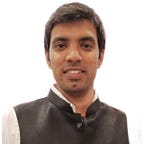Rewriting Indian History School Textbooks
Rewriting Indian History
Recently, there has been a lot of debate on rewriting Indian history as there are multiple claims that the history in our school textbooks is distorted. Historians, experts, teachers, parents and many of us are keenly debating on the issue of what is our real history and whether one should rewrite the history?
In this post, we discuss two sociological terms to better understand perspectives to this debate.
Ideological State Apparatus (ISA) and Repressive State Apparatus (RSA)
State Apparatus is the means through which state reproduces its economic and social conditions. These apparatuses (particularly ISA) were extensively discussed by French philosopher Louis Althusser.
Now, repressive state apparatuses (RSAs) include the government, the administration, the army, the police, the courts, etc. These are institutions that use violence and dominance to promote the ideologies of the state (state refers to the govt. here).
And, ideological state apparatuses (ISAs) include the educational institutions, the religious places, media, etc. These are institutions that technically aren’t in state’s control but effectively propagate the ideology of the state indirectly.
So, while propaganda or ideologies propagated through RSAs are patent and observed, realized and critiqued by the public, ISAs are integrated part of the society and the ideologies propagated through ISAs seep deep into the society slowly and create an impact that may not be observed directly.
I think you’re getting the point here. No history is apolitical. And education is one of the foremost tools to civil a society with a certain ideology and maintain order.
I feel re-writing the history can be a significant attempt to continuously check for previous biases, but we also need to identify the current ideologies that is driving the re-writing. It seems we’re just riding on the fact that the history is distorted and not at all worried that we might be creating another version of the distorted history.
We had biases, we will have biases. Let’s challenge the ones that existed then but also the ones that exist now. Remember, personal is political!
Further, there are three important questions that we need to ask:
1. Who is writing the history?
Let’s say two of your friends had a fight and they end up beating up each other. And you heard one side of the story, what would you do? Obviously! Before jumping to any conclusion, you would hear the story of the other friend as well. And probably also get a third perspective from someone who was present. Why? Because you want to remove the biases through “triangulation”.
Now, history is a lot more complex. It’s not in binary and while the above example might sound reductionist, as of course history is not written by an individual or two, but again, the level of complexity still makes it an issue of perspectives and interpretations.
2. For whom is it written?
Arguably history textbooks are for students to understand where we come from and how we were shaped as a society and a community. What we make of tomorrow would depend on how we analyse the past. And kids are our future generation and they need to continuously evaluate what they learnt and what they make of it.
3. What do we want to achieve? Why teach history at all?
Let’s say your friend has depression, what do you do? You find the history of it? Without knowing the history, no friend or therapist can help. History is vital for building a future. But in schools, history textbooks have been reduced to a tool for glorifying and vilifying certain people. History textbooks are for the younger generation to build on many core skills and learn to learn-unlearn-relearn continuously evaluating their learning.
In fact, history can be interpreted in many ways:
1. It can be seen as a marvel for the kind of human efforts in unearthing what happened thousands of years back
2. It can also be seen as a limitation to how much we couldn’t figure out? How much we still don’t know? See, we still debate the big bang and the steady state theory.
3. Or it can be seen as a debate — a debate of how we can interpret, learn, relearn and wonder about our past. How we can look at life from perspectives, and continuously learn from them.
Let’s teach history for the questions and curiosity it can create in a child’s mind, instead of reducing it to few facts that we keep manipulating according to our ideology or agenda!
